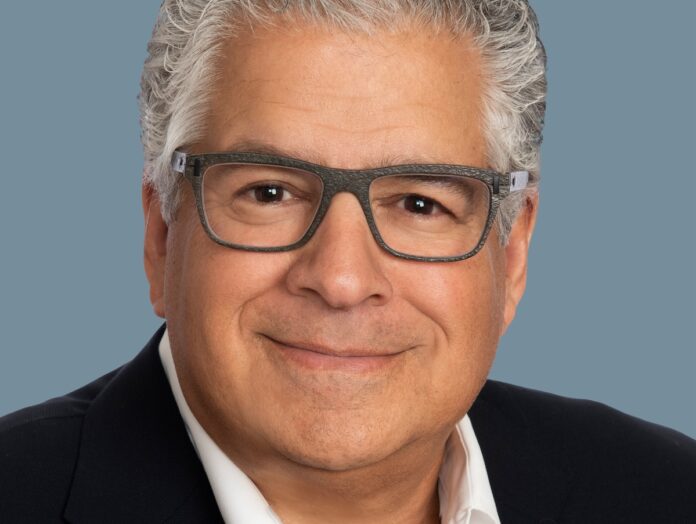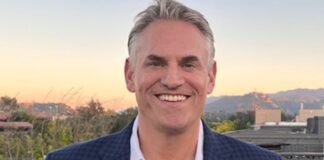Prism is revolutionizing the recycling industry by transforming end-of-life tires and plastics into sustainable, high-performance materials that reduce carbon footprints and support a circular economy
Could you give us an overview of Prism Worldwide and introduce the founding team behind the company?
Spike Anderson, William Coe, and I founded Prism in 2019. Spike introduced the concept of tire technology to William and the use of ground tire rubber for asphalt. Spike contacted me, and after understanding the patents, we formed a company because of the broad applications that could be developed with its foundation.
Prism’s mission is to create polymers used in many everyday materials, including plastic water bottles, phone earbuds, and car tires, that achieve the required specifications of virgin materials, utilizing rubber from end-of-life tires (EOL) (which constitutes post-consumer recycled material) with the combinations of Post-Industrial Recycled (PIR) and Post-Consumer Recycled (PCR) plastics. As a result, this provides a valued base product that delivers quality, price advantage, and sustainability.
What inspired the creation of Prism Worldwide, and how did the idea for sustainable tire and plastic recycling first come about?
There are 1.3 billion end-of-life tires generated worldwide, increasing each year, with more than 300 million EOLs in the U.S. alone. 35.7 million tons of plastics require recycling each year in the U.S. Only 8.7% is recycled. With EOL tire recycling, more than 50% of the tires are burned for fuel, 25% are used on roads, ball fields, roadside mulch, and other less industrious ways, and 25% still go to landfill or are illegally dumped.
When forming Prism, we realized that with strong technology and development, which we refer to as hard tech, we could develop the utilization of both waste streams that would generate more than $75 billion in revenue. Combining performance recycled material with virgin materials, we could offer specifications that manufacturers want with a value proposition and a sustainable approach they desire. In addition, we believe and now know that these materials could be recycled. Our technology provides the best solution to create the highest recycled content in Thermoplastic Elastomer (TPE), a type of plastic that can be recycled and is considered an eco-conscious option; thermoplastic vulcanizates (TPV), a type of TPE that can be recycled, elastomers, and modified olefins without sacrificing performance.
Prism Worldwide aims to reduce the carbon footprint from end-of-life tires and recycled plastics. How does the company plan to achieve this vision on a global scale?
We can reduce the carbon footprint because our technology is not capital-intensive to scale; it’s energy-efficient because it’s produced starting at ambient temperatures. It creates significant carbon savings versus the same specification virgin materials are made of, which are heavily carbon intensive per metric ton. Our goal is to expand our manufacturing footprint or create opportunities for strategic investment/partnerships with larger polymer manufacturers that want to add sustainable materials to their portfolio.
Who is the primary audience for Prism Worldwide’s technology, and what unique needs do they have that you aim to address?
We have a broad and diversified initial customer base, from materials for telecommunication pedestals that are supplied to tier-one companies to applications in automotive parts and accessories. Since we produce value-focused materials, the sustainability story gives manufacturers a bonus. By 2030, the upcoming mandates for the EU call for 25% of new automobiles to use sustainable materials, and 25% of that material will be PCR material. This will provide us with significant opportunities.
We are also developing Ethylene Propylene Diene Monomer (EPDM), a synthetic rubber material that’s durable, flexible, and resistant to many environmental factors, and TPV material with substantial recycled content. That will reach a high-value polymer materials market wide open to a new class of sustainable products.
What are some of the biggest challenges Prism Worldwide faces in terms of scaling its technology, and how are you addressing these obstacles?
Our purchase of CRC Polymer Systems (CRC) in 2022 provided a platform for us to commercially scale our materials. We look at this plant as a scale-up performance plant that can allow us to scale revenue. In this location, we have our R & D team, lab, and the equipment to produce in volume. We can take the experience from our Sodus, NY, plant to scale a larger greenfield location.
In what ways does Prism Worldwide differentiate itself from other companies in the recycling and sustainability sector?
There is a long history of companies trying to devulcanize EOL tire rubber. The playing field is scattered with failures. What makes us different and unique is that we know that in our patented process, we rendered the sulfur inert and created a functional polymer intermediate that can be utilized whether you want to cross-link the material or not in a wide variety of materials.
Can you share a bit about the upcoming fundraising round? How will these new resources support your goals?
While we expect to be EBITDA positive on a monthly basis by Q3 2025, we want to build cash reserves for expansion, potential acquisitions, plant capital, technical team expansion, and new opportunities. We expect this will be the final equity raise because conventional banking arrangements will present themselves as we hit our financial goals.
What are some of the key developments or innovations that Prism Worldwide plans to introduce in the next five years?
The TPV and EDPM markets will be a significant development for the company. Not only do we believe we can hit performance specifications, but we can offer these materials with large value propositions in comparison to virgin materials.
What drives you personally to pursue this mission in sustainable recycling, and what do you find most rewarding about this journey?
I built one of the largest private-label bottled water manufacturing companies in my previous career. That company produced billions of polyethylene terephthalate (PET) water bottles. I have a motto, “ I am not anti-plastic; I am pro-recycling.”
As a grandfather of four beautiful grandchildren, I believe it’s my duty to assist in the battle to reuse materials that can create second and third-functional lives. I want to contribute to helping make a better world for them and future generations. This is a mission I completely believe in, as do my children and the new generation of leaders who are in their mid-40s and underage groups.
Every time we help create materials for a new application that allows for some substitution of virgin materials, It provides me great joy and a sense of doing the right thing.
How does Prism Worldwide ensure that its approach is both environmentally responsible and economically viable?
Our patented process uses less energy than other recycling technologies. We work extremely hard to maintain that approach throughout our development.
What are three essential pieces of advice you would offer to new founders aiming to build a sustainable business?
- Is there a need for your idea or product, and does it meet the required performance specifications?
- Is there a value proposition versus the current technology or application? This means that manufacturers and consumers still do not want to pay a premium for green applications.
- Be patient and persistent in your company mission. It takes time to change the direction of potential customers who are comfortable in their ways.
Looking forward, what do you envision as the biggest opportunities for growth and innovation in the recycling and sustainability industry?
We are past the pioneering development stage in recycling and sustainability. As companies figure out how to make more post-consumer materials usable and available, sustainable technologies have huge potential to partner with virgin-based companies/manufacturers to grow a bigger business universe and a better world.
Picture: Bob Abramowitz co-founder and CEO, @ Prism
Thank you Bob Abramowitz for the Interview
Statements of the author and the interviewee do not necessarily represent the editors and the publisher opinion again.

















